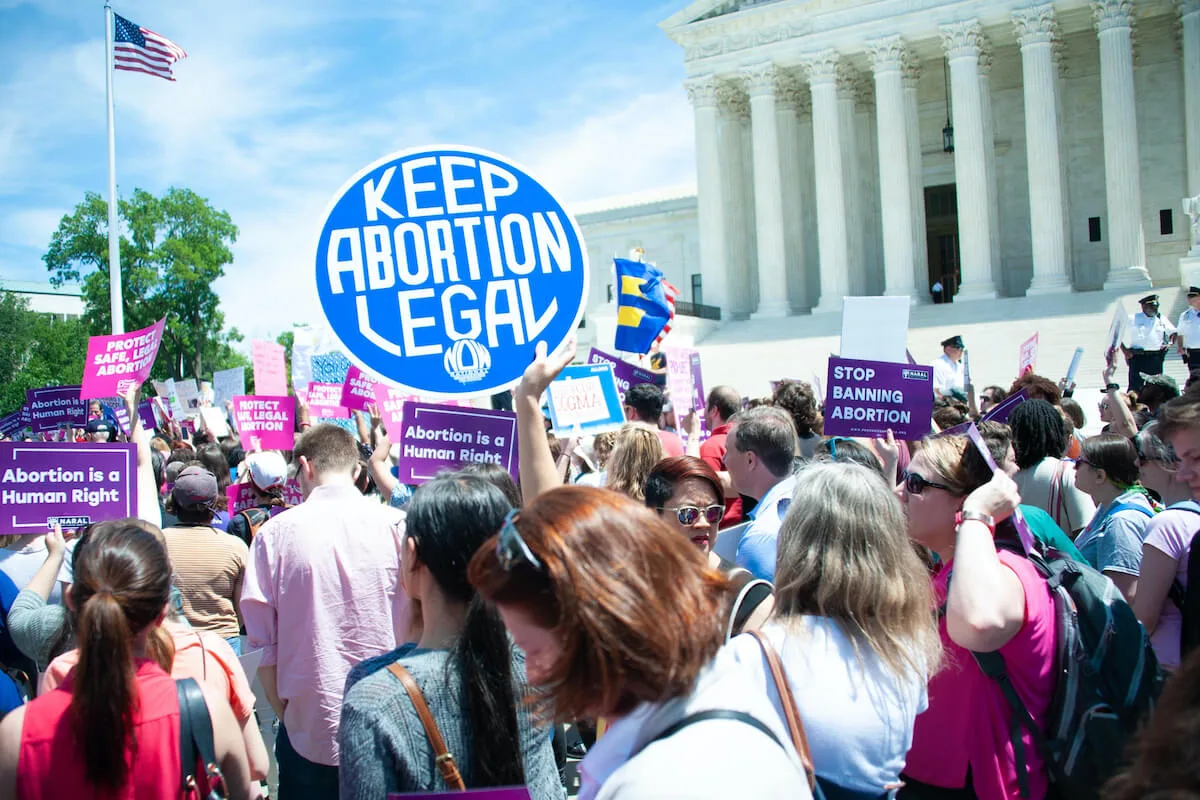
#image_title
#image_title
Bills introduced as Supreme Court considers new abortion barriers
On the same day the U.S. Supreme Court began hearing oral arguments on a case that would limit a doctor’s ability to provide abortions, pro-choice advocates in Wisconsin introduced legislation to protect a woman’s right to reproductive health care.
Rep. Chris Taylor, D-Madison, and Sen. Jon Erpenbach, D-West Point, on Wednesday joined medical professionals, the Wisconsin Alliance for Women’s Health, Planned Parenthood Advocates of Wisconsin, and other reproductive health care advocates at a Capitol press conference to introduce the RESPECT Women Act.
The package of bills would establish a patient’s right to receive — and a physician’s right to provide — medically accurate information without political interference.
The bills also would uphold the right of women to obtain an abortion, a right afforded to them by the Supreme Court’s landmark 1973 decision, Roe v. Wade. The bill would codify the ruling into state law.
“My ability to do my job, and my patients’ right to obtain the health care they need, is undermined when politicians, the vast majority with no medical training, bring their politics into my office,” said Dr. Amanda Schmehil-Micklos, an obstetrics & gynecology specialist in Madison.
The case before the Supreme Court, June Medical Services v. Russo, centers on a Louisiana law that requires physicians who perform abortions to have “active admitting privileges” at a hospital within 30 miles of the facility where the doctor provides abortions.
This same law was approved in 2014 by then GOP Gov. Scott Walker and the Republican-controlled Legislature. The law was struck down by a federal appeals court in 2015, and the Supreme Court ruled in 2016 a similar Texas law was unconstitutional.
Doctors who perform abortions without having admitting privileges face imprisonment or fines; the clinics that employ them could also be fined, have their licenses revoked, and face civil liability.
It is the first abortion case before the U.S. Supreme Court since President Donald Trump’s two conservative judges joined the court.
Should the law, known as the “Unsafe Abortion Protection Act,” go into effect, it is expected to force the closure of two of the three remaining abortion clinics in Louisiana.
Mike Murray, executive director of Planned Parenthood Advocates of Wisconsin, said the court’s ruling will be felt in Wisconsin, too.
“Today, the U.S. Supreme Court is hearing oral arguments in a case that could determine the future of abortion access both in Wisconsin and across the country,” Murray said. “If Roe v. Wade were to be overturned, abortion would immediately become a crime in Wisconsin. It’s time for our state lawmakers to step up and support the RESPECT Women Act. This legislation presents a bold, positive vision that protects a woman’s ability to make her own health care decisions.”
Anti-abortion advocates have been chipping away at aborton access over the past 10 years by passing state laws to restrict access rather than trying to overturn Roe v. Wadge outright via the Supreme Court.
It is a new tactic that is proving successful, especially in GOP-controlled states. Passing state laws such as the law before the Supreme Court Wednesday requiring admitting privileges for doctors can have the same crippling effect on a woman’s right to have an abortion.
Accessing abortion services in Wisconsin has become more difficult since Republicans took control of state government in Wisconsin, said Sara Finger, founder and executive director of the Wisconsin Alliance for Women’s Health.
“Since (former) Governor SCott Walker was elected, and a super majority emerged in 2010, we have seen a fever pitch of proposals restricting reproductive health introduced,” Finger said. “I have watched bill after bill passed while those in power blatantly ignore the science and the evidence presented and disrespect the education and experience of physicians and health professionals.”
The RESPECT Women Act legislation was prompted, Taylor said, by the fact women’s reproductive health could be in peril because of the case before the Supreme Court.
“This package of bills will put these personal health care decisions back where they should be – between a woman and her doctor,” Taylor said.
Julian Emerson contributed to this report.
Politics

‘Radical’ Republican proposals threaten bipartisan farm bill, USDA Secretary says
In an appearance before the North American Agricultural Journalists last week, United States Department of Agriculture (USDA) Secretary Tom Vilsack...

New Biden rule protects privacy of women seeking abortions
Under the new rules, state officials and law enforcement cannot obtain medical records related to lawful reproductive health care with the goal of...
Local News

Readers Poll: Top Bowling Alleys in Wisconsin
Looking for the best bowling in Wisconsin? Look no further! Our readers have spoken in our recent poll, and we have the inside scoop on the top...

8 Wisconsin restaurants Top Chef judges are raving about
Top Chef’s 21st season is all about Wisconsin, and on-screen, it’s already apparent that the judges feel right at home here. But, while filming in...




